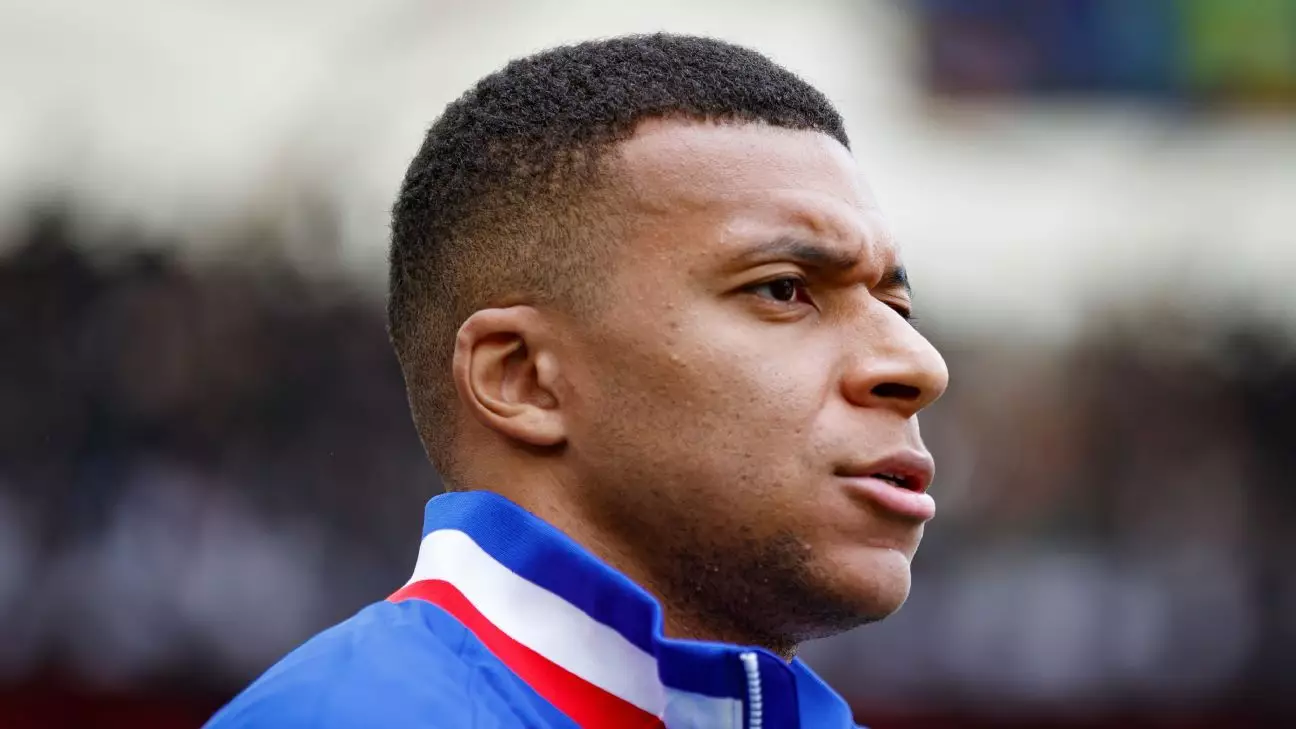Kylian Mbappé, one of football’s most electrifying talents, has found himself at the center of a significant legal dispute with his former club Paris Saint-Germain (PSG). This clash is not merely about finances; it encapsulates deeper issues of trust, respect, and the complexities of modern football contracts. As per recent revelations from the Paris prosecutor’s office, Mbappé has accused PSG of moral harassment, asserting that the club owes him a staggering €55 million ($61 million) in unpaid wages due to a breakdown in their professional relationship. This conflict sheds light on the intricacies of player-club dynamics and the often contentious nature of contractual obligations in the sport.
Circumstances Leading to Legal Action
To fully grasp the narrative surrounding Mbappé’s claims, one must consider the backdrop of his departure from PSG. After seven prolific seasons, during which he netted an impressive 256 goals and became a cornerstone of the team’s identity, the relationship soured dramatically. The crux of the issue lies in Mbappé’s refusal to extend his contract, a decision that sent shockwaves through the club. Following this choice, PSG’s response was notably harsh. The forward was subjected to what is termed “lofting,” a practice where a player is isolated from regular training and matchday squads, presumably as a disciplinary measure. It’s an archaic tactic that raises ethical questions about player treatment in professional sports.
Promises and Disappointments
Further complicating the narrative is Mbappé’s disillusionment with PSG following unfulfilled promises regarding team investments. When he signed a staggering contract in 2022 portrayed as a long-term commitment, it was under the expectation that the club would bolster the squad significantly. Yet, as the seasons wore on, Mbappé felt those assurances fell flat, leading him to question the club’s ambition and direction. His dissatisfaction grew to a tipping point when, in June 2023, he declared he would not activate an option for an additional year on his contract, effectively prompting PSG to consider a sale.
This decision understandably placed PSG in a precarious position, forced to navigate an impending financial loss should they fail to sell the player before his departure for nothing in 2024. The tension on both sides became palpable, culminating in a stand-off situation that showcased the often dramatic and cutthroat nature of football.
The Price of Loyalty
Mbappé’s legal claims go beyond mere financial recompense; they embody a broader issue of player autonomy and the moral responsibilities clubs have towards their athletes. The reality of lofting and the surrounding behavior from club officials highlight a troubling precedence in football—where young, world-class talents are sometimes treated as mere assets. In the current landscape, players like Mbappé must navigate not only the pressures of performance but also the whims of club politics, falling victim to maneuvers designed to punish them for decisions that may not align with the club’s interests.
During this tumultuous period, Mbappé’s decision to maintain his stance—a move that cost him severely in terms of both reputation and immediate earnings—reveals a fortitude rarely seen in the upper echelons of professional sports. It begs the question: how much should loyalty be expected of a player when they are met with hostility from the very club they’ve dedicated years of service to?
Fans and the Broader Impact of the Dispute
Adding another layer to this saga is the reception of the PSG fanbase. Following the announcement of Mbappé’s non-extension, hostility from fans culminated in a breakdown of support during his final appearances, where boos echoed in the Parc des Princes. This reaction underscores how passionate and volatile the relationship can become between players and fans when contractual disputes arise. It also signals a troubling trend: the scapegoating of players who engage with their own professional aspirations, rather than conforming to club-controlled narratives.
While Mbappé’s legal action aims to seek closure and redress for grievances he feels are valid, it serves as a pivotal moment in the realm of football, potentially influencing how player grievances are addressed in the future. By taking a stand in court, he not only advocates for himself but also opens the door for a reevaluation of how clubs might treat their marquee players, setting new precedents in player rights and professional conduct in the world of sports.

